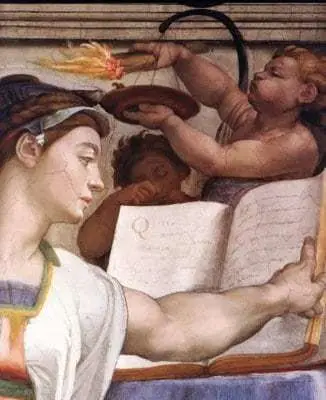An Excerpt from ‘God’s Birthday’ by Dr. Taylor Marshall
Dr. Taylor Marsall writes…
Secular magazines and “experts” on the History Channel love to gloat over Christians every December and “prove” how Christ was not born on December 25. Recently, the same “Christ wasn’t born on Dec 25” argument was taken up by Bill O’Reilly in his book Killing Jesus.
You can download the entire (short) book for free by clicking here. Here’s what you’ll get:
- How to answer the 3 most common objections against a December 25 Birthday
- A Biblical Argument from Luke’s Gospel locating Christ’s birth in late December
- An analysis of Church Fathers who defended the birth of Christ on December 25
- An explanation of how the Jewish historian Josephus got the dates wrong
- How and why Christ was born on Dec 25 in the year 1BC
It seems that the Jews were not the only ones waiting for a Savior. There is a strong tradition that even pagan seers began to prophesy of the coming Christ who would be a heavenly child and king of the world. The prophetic voice of the classical world belonged to sibyls. The word sibyl comes from the Greek word sibylla, which means “prophetess.” The sibyls were women who uttered prophetic oracles at shrines or temples throughout the classical world.
Visitors to the Vatican are sometimes amazed to learn that pagan sibyls are included along with the Israelite prophets on the ceiling of the Sistine Chapel. Michelangelo included five sibyls on the ceiling of the Sistine Chapel since each prophesied of the coming of Christ:
Erythræan Sibyl
Persian Sibyl
Libyan Sibyl
Cumæan Sibyl
Delphic Sibyl
These prophecies of the Sibyls were well known in the ancient world. For example, Virgil quotes the Cumæan Sibyl in his fourth Eclogue:
Now the last age of Cumæan Verses is come,
Afresh the great cycle of ages begins,
Returns the Virgin, Saturnian Kingdoms return,
The heavenly Offspring descends from on high.
This was written before the birth of Christ, and yet Virgil acknowledges the Cumæan sibyls prophecy that a Virgin would bring forth a heavenly child from on high. Compare Virgil’s words to those of Saint Gabriel to the Blessed Virgin Mary:
“The Holy Spirit will come upon
you, and the power of the Most High will
overshadow you; therefore the child to be born
will be called holy, the Son of God” (Lk 1:35).
Cicero, the Roman orator and philosopher wrote “It has been announced in ancient prophecies that a king is to appear, to whom men must do homage in order to be saved.”
The Roman historian Suetonius wrote that “throughout the East an old and constant opinion was frequently expressed to the effect men starting from Judea were destine at that time to acquire the world-wide supremacy.”
The Roman historian Tacitus concurs:
Men were convinced that it was
written in the ancient books of the
priests that at that very time the East
should grow strong and men starting
from Judea should acquire the
supremacy.
We read in the Gospel of Saint Matthew that Jesus Christ was born under the reign of Caesar Augustus. The reader should feel the political tension between the success of Caesar and birth of a mysterious baby acclaimed as the king of heaven and earth. The supernatural Kingdom of God has crashed into the Fourth Kingdom of this world as described in the second chapter of Daniel. Christ would later answer a nervous Pilate with the striking statement: “My kingdom is not of this world” (Jn 18:36).
The Angel Gabriel came to a young teenage maiden named Mary who lived under Roman rule. The message is amazing. According to the visions of Saint Elizabeth of Hungary, the Blessed Virgin Mary was praying for the coming of the Messiah at the very moment the Angel Gabriel arrived. Gabriel announced:
“Hail, full of grace, the Lord is with you!”
But she was greatly troubled at the
saying, and considered in her mind
what sort of greeting this might be
(Lk 1:29).
Regarding this angelic salutation of Gabriel, theBlessed Virgin Mary herself related the following information to Saint Mechtilde of Hackeborn (died in 1298):
My daughter, I want you to know
that no one can please me more by
saying the salutation which the Most
Adorable Trinity sent to me and by
which He raised me to the dignity of
Mother of God. By the word “Ave,”
which is the name Eve, I learned that
in His infinite power God has
preserved me from all sin and its
attendant misery which the first
woman had been subject to.
Moderns would likely dismiss Saint Mechtilde’s account as pious fiction for the simple fact that the Blessed Virgin Mary would not have likely received the angelic salutation in Latin with the Latin greeting Ave. Rather, the Greek of Saint Luke’s Gospel reads Chaire, not the Latin Ave.
There is, however, something to Saint Mechtilde’s revelation. The Catholic commentator Cornelius a Lapide makes an excellent observation. Saint Gabriel would have addressed Mary in Hebrew, and likely would have begun his annunciation with the Hebrew greeting “cha-ve” meaning “Live,” as in “Long live the king” or “Viva Papa” or “Viva Cristo Rey.” Now then, according to Genesis 3:20, the Hebrew name of Eve is “cha-va” meaning “living” because, as the Holy Spirit explains, Eve is the “Mother of the Living.”
This shows that there is indeed a mystical meaning in the original Hebrew greeting of Gabriel to Mary, and that the Virgin’s explanation to Saint Mechtilde is linguistically accurate within the limits of Hebraic vocabulary. Moreover, this linguistic commonality further establishes Mary as the New Eve.
Read on… http://taylormarshall.com/2014/12/3-reasons-christ-was-born-on-december-25.html


